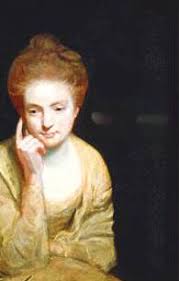Original: «She must be a fool with a witness, who can believe a man, proud and vain as he is, will lay his boasted authority, the dignity and prerogative of his sex, on moment at her feet, but in prospect of taking it up again to more advantage; he may call himself her slave a few days, but it is only in order to make her his all the rest of his life».
Fuente: Astell, Mary. Astell: Political Writings. Editor Patricia Springborg. Edición ilustrada. Editorial Cambridge University Press, 1996. ISBN 9780521428453. p. 44.
Fuente: Reflection upon Marriage
Frases célebres de Mary Astell
Original: «Again, if Absolute Sovereignty be not necessary in a State, how comes it to be so in a family? Or if in a Family why not in a State; since no Reason can Be alle'd for the one that will not hold more strongly for the other?».
Fuente: Citado en Kolbrener, William. Mary Astell: Reason, Gender, Faith. Editor Michal Michelson. Editorial Routledge, 2016. ISBN 9781317100096. p. 203.
Original: «Thus, whether it be wit or beauty that a man’s in love with, there are no great hopes of a lasting happiness; beauty, with all the helps of arts, is of no long date; the more it is , the sooner it decays; and he, who only or chiefly chose for beauty, will in a little time find the same reason for another choice».
Fuente: Astell, Mary. Astell: Political Writings. Editor Patricia Springborg. Edición ilustrada. Editorial Cambridge University Press, 1996. ISBN 9780521428453. p. 42.
Fuente: Reflection upon Marriage
Original: «An ill husband may deprive a wife of the comfort and quiet of her life, give occasion of exercising her virtue, try her patience and fortitude to the utmost, which is all he can do; it is herself only that can accomplish her ruin».
Fuente: Citado en The Whole duty of a woman: female writers in seventeenth century England Autor, editor y colaboradora Angeline Goreau. Edición ilustrada. Editorial Dial Press, 1985. ISBN 9780385278782. p. 157.
Mary Astell: Frases en inglés
As quoted in Women's Political & Social Thought: An Anthology, p. 112. Editors Hilda L. Smith, Berenice A. Carroll. Editorial Indiana University Press, 2000. ISBN 0253337585.
Reflection upon Marriage, as quoted in Astell: Political Writings, p. 42, by Mary Astell, Editor Patricia Springborg. Editorial Cambridge University Press, 1996. ISBN 0521428459.
Reflection upon Marriage, as quoted in Astell: Political Writings, p. 44.
As quoted in The Whole duty of a woman: female writers in seventeenth century England, p. 157, by Angeline Goreau. Editorial Dial Press, 1985. ISBN 0385278780.
As quoted in Mary Astell: Reason, Gender, Faith, p. 203, by William Kolbrener. Editor Michal Michelson. Editorial Routledge, 2016. ISBN 1317100093.
An Essay in Defence of the Female Sex. P. 54 https://archive.org/details/essayindefenceof00aste
